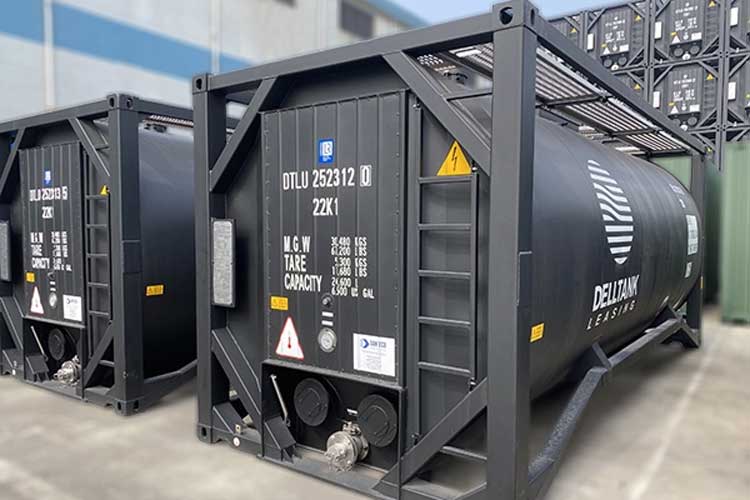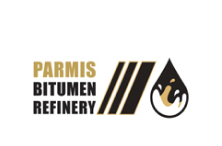Have you ever pondered the sourcing and management of the enormous quantities of bitumen required for infrastructure projects like highways and airport runways? Bulk bitumen, an innovative, useful, and cost-effective method of using, storing, and transporting this crucial building material, is the answer. The black, sticky substance that is created when crude oil is refined is called bitumen, sometimes referred to as asphalt or tar. Bulk delivery is now preferred by large users who wish to optimize cost, time, and quality control, even though bitumen can be transported in smaller packaged forms.
The definition of bulk bitumen, its different grades, its manufacturing and shipping processes, and the many benefits it offers companies worldwide will all be covered in this article.
What Is Bulk Bitumen?
Bulk bitumen is bitumen that is transported, stored, and distributed in large quantities without packaging, usually in bulk containers, tankers, or ships. In order to prevent solidification, the material is typically supplied at high temperatures (between 150 and 180°C) in liquid form rather than in drums or bags. This strategy ensures a consistent supply and cost-effectiveness for those wishing to buy bulk bitumen directly from reputable producers for industrial projects, refineries, and construction companies that require tons of bitumen daily.
Unlike packaged bitumen, which is suitable for small-scale projects or areas with poor infrastructure, bulk bitumen is meant for industrial-scale operations. It will be perfect for governments, road builders, and exporters who deal with large-scale asphalt applications. For its handling and logistics, specialized equipment such as bitumen tankers, storage tanks, and heating systems are required in order to maintain the right temperature during storage and transportation.
How Is Bulk Bitumen Produced?
The refining of crude oil is the first step in the production of bulk bitumen. Lighter hydrocarbons, such as kerosene, diesel, and gasoline, are separated and distilled during this process, leaving behind a thick residue called vacuum bottom (VB). This residue undergoes further refining in a vacuum distillation unit, producing bitumen with specific viscosity and penetration characteristics.
The bitumen is put through quality testing after production to make sure it meets international standards such as ASTM, EN, or ISO requirements. After that, the heated liquid is pumped into insulated storage tanks so that it can be shipped as bulk cargo. It can be loaded into bulk bitumen vessels for export, flexi-bags for intermediate bulk handling, or bitumen tankers for road transportation, depending on the needs of the customer. Temperature control is essential during this process to keep the bitumen from solidifying or oxidizing and to preserve its best performance qualities.

Difference between bulk bitumen and other bitumens
The primary distinction between bulk bitumen and other types is not the chemical makeup of the bitumen but rather how it is stored, packaged, transported, and used. Large amounts of bulk bitumen are supplied and transported, typically in heated tankers, ships, or rail wagons, and it is kept liquid by maintaining high temperatures (150–180°C). Because it offers cost savings, quicker delivery, and superior quality preservation, it is perfect for industrial-scale applications like road construction, airport runways, and large waterproofing projects.
In contrast, bitumen that is packaged for smaller projects is known as drum bitumen, bagged bitumen, or emulsion bitumen. Drum bitumen is easier to handle in places without electricity because it is poured into steel drums and heats infrastructure and solidifies electricity as it cools, but it is more expensive to transport and store. Bagged bitumen is portable but unsuitable for continuous industrial use, whereas emulsion bitumen, also called cutback bitumen, is chemically changed to remain liquid at room temperature for cold-mix applications or road maintenance.
Types and Grades of Bulk Bitumen
Bulk bitumen is categorized according to its softening point, viscosity, and penetration value, all of which show how it behaves under various load and temperature scenarios. The following are a few of the most popular grades of bulk bitumen:
- Penetration Grade Bitumen (e.g., 60/70, 80/100): This type, which indicates how soft or hard the bitumen is at a specific temperature, is the most commonly used in road construction. The numbers (such as 60/70) indicate how deeply a typical needle can pierce bitumen under particular circumstances.
- Viscosity Grade Bitumen (VG10, VG30, VG40): Their flow characteristics at specific temperatures determine these grades. Viscosity grades, which provide greater control over performance in hot or cold environments, are especially prevalent in nations with diverse climates.
- Performance Grade Bitumen (PG Bitumen): This type of bitumen is designed to withstand particular temperature ranges and is based on climatic conditions. For instance, PG 64-22 works well in areas with temperatures that can reach 64°C and drop to -22°C.
- Polymer Modified Bitumen (PMB): To improve flexibility, elasticity, and resistance to deformation, bitumen is frequently modified with polymers such as SBS or EVA for demanding infrastructure projects.
Storage of Bulk Bitumen
Proper storage is a critical part of bulk bitumen management. Bitumen must be stored in thermally insulated steel tanks equipped with heating systems, level indicators, and temperature control units. Depending on the grade, the optimal storage temperature is typically kept between 150°C and 170°C. While too little heat can cause the bitumen to solidify, too much heat can cause oxidation or polymer degradation.
In order to ensure supply flexibility, modern bulk bitumen terminals are built with multiple tanks to store various grades. These facilities frequently have transfer pipelines, filtration units, and pumping systems that enable smooth loading and unloading. To prevent contamination, obstructions, or overheating, routine maintenance and inspection are essential.
Advantages of Using Bulk Bitumen
The asphalt industry has undergone a revolution with the move from packaged to bulk bitumen. Here are some of the major advantages of using bulk bitumen:
1. Cost Efficiency
Costs related to packaging, filling drums, and disposal are greatly decreased when bitumen is purchased in bulk. It is a cost-effective option for large-scale projects since businesses save money on both labor and materials.
2. Environmental Benefits
Bulk bitumen reduces waste production and environmental impact by doing away with drums and packaging materials. Because of this, it is a more environmentally friendly choice for contemporary infrastructure.
3. Better Quality Control
Less air exposure occurs when bitumen is handled in bulk, which lowers oxidation and preserves uniformity in viscosity and penetration levels. Road surfaces become more resilient as a result.
4. Simplified Logistics
Bulk delivery makes on-site handling and transportation easier. Businesses can ensure smoother operations by receiving a continuous bitumen supply straight to their plants with the right storage infrastructure.
5. Faster Project Execution
By delivering large amounts of bulk bitumen straight to asphalt plants, packaging and unloading delays can be minimized. Project timelines are accelerated by this efficiency.

Applications of Bulk Bitumen
The foundation of the waterproofing and construction sectors is bulk bitumen. Among its primary uses are:
- Road Construction: It gives road surfaces flexibility and durability by acting as a binder in asphalt mixtures.
- Airport Runways: Strong adhesion and resistance to heavy loads are guaranteed by high-viscosity grades.
- Waterproofing and roofing: Used in sealants, coatings, and membranes to shield structures from moisture and ultraviolet light.
- Industrial coatings: Provide a layer of protection against corrosion for tanks, pipelines, and marine structures.
- Bituminous Emulsions: Used in cold-mix asphalt applications, surface dressing, and road maintenance.
Parmis Delijan: Leading Producer and Exporter of Bitumen
In the bitumen sector, Parmis Delijan Bitumen Refining Company is a respectable and well-known brand, distinguished by its dedication to quality, innovation, and client satisfaction. The business produces and sells a variety of bitumen products, including bulk bitumen, which is extensively utilized in industrial, waterproofing, and road construction. Parmis Delijan Bitumen Refining Company has made a name for itself as a dependable supplier for both domestic and foreign markets thanks to its cutting-edge refining technology, stringent quality control standards, and emphasis on sustainable operations.


